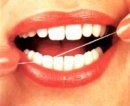
Get our Bad Breath Research Newsletter!
new!

2 phase
Mouthwash!



Originally appeared in The Dentist 11:38-40, 1995. Used with permission.
Mel Rosenberg, Ph.D.
The Maurice and Gabriela Goldschleger School of Dental Medicine,
and the Department of Human Microbiology,
Sackler Faculty of Medicine,
Tel Aviv University,
Ramat Aviv 69978,
Israel
Telephone: 972-3-6429311
Fax: 972-3-6409250
Email: melros@post.tau.ac.il
Dentists are often asked about bad breath, and often don't know quite what to say. This is
probably because dental school curricula either do not include the subject in their
curriculum altogether, or cover it only in the most cursory manner. How unfortunate, since
dentists are the ones who should know best how to handle complaints of oral malodour. In
the large majority of cases (85-90% is a fair estimate) the origin of the offending odour
is in the mouth itself. Furthermore, most cases of bad breath are amenable to treatment.
In some cases, bad breath can be a warning signal for periodontal disease or,
occasionally, a systemic problem. Finally, many dentists themselves suffer from bad breath
and although they do not know it, their staff and patients do.
 The
purpose of this article is to answer some frequently-asked questions about this common
human condition. For a more in-depth approach, readers may wish to consult a book recently
published on this subject - Bad
Breath Research Perspectives.
The
purpose of this article is to answer some frequently-asked questions about this common
human condition. For a more in-depth approach, readers may wish to consult a book recently
published on this subject - Bad
Breath Research Perspectives.
When asked by their patients about the possibility of bad breath, practitioners should
consider setting up a special appointment. This is because patients often clean and
deoderize their mouth several minutes before coming into the clinic.
For at least two hours prior to a consultation on oral malodour, it is important that the
patient not eat, drink, chew, smoke, gargle or brush his/her teeth. Second, it is
recommended that the patient bring with a close friend or family member
("confidant") who can describe the problem in an objective fashion, and verify
that the odour at the time of the consultation is similar, if not in intensity, then at
least in quality, to the odour which is usually bothersome.
1. I have bad breath. Should I first go see a
gastroenterologist?
Most certainly not. Bad breath almost never comes from the gastrointestinal tract. This is
because under normal operation the oesophagus is collapsed and air can only escape in the
form of an occasional rising bubble of air (belch). Since bad breath usually comes from
the mouth, the gastroenterologist should be the last specialist on your list, the dentist,
the first.
2. You say that
bad breath usually comes from the mouth. What places within the mouth are most likely to
be responsible?
In a mouth with healthy dentition and gums, the first place to look is the back of the
tongue dorsum. This area can be most easily probed by scraping with a plastic spoon. In
many cases, a yellowish discharge is obtained on the spoon.
 In
my opinion, this discharge originates in postnasal drip, a very common condition. The
postnasal drip may not smell when it reaches the tongue, but after sitting there for a
while it takes on a characteristic unpleasant odour. Just by comparing the smell on the
spoon with the odour exiting the mouth, one can often pinpoint the problem.
In
my opinion, this discharge originates in postnasal drip, a very common condition. The
postnasal drip may not smell when it reaches the tongue, but after sitting there for a
while it takes on a characteristic unpleasant odour. Just by comparing the smell on the
spoon with the odour exiting the mouth, one can often pinpoint the problem.
One solution to odour from the back of the tongue is to gargle with an effective
mouthrinse (the dentist should recommend one with minimal side effects), and then directly
to clean the tongue gently but thoroughly using a tongue scraper or regular toothbrush
(without paste). Initially, it is difficult to clean this part of the tongue because it
initiates gagging reflex, but, with time, this is easily overcome.
The teeth and gums are the other common source of oral malodour, particularly subgingival
and proximal areas. Margins, overhangs, leaky crowns, and periodontal pockets are prime
sites for anaerobic bacterial activity leading to putrefaction.
One simple way of helping to diagnose whether bad breath is from the mouth or not is to
compare the odour coming from the patient's mouth with that coming from the nose. If the
odour is primarily from the mouth, then that is the place to look. Another simple
technique is to prescribe a strong antibacterial mouthwash (e.g., 0.2% chlorhexidine) for
rinsing and gargling for one week. If the odour subsides, it is likely due to an oral
etiology.
Since bad breath is exacerbated when the mouth dries out (e.g., after a long speech,
during sleep, when under stress, as the result of medication), anything that gets the
juices flowing (even a 2 minute chewing gum break) will be helpful.
3. Outside the
mouth itself, what other reasons are there for bad breath?
The nose and nasal passages constitute the second most-common site of bad breath.
Sinusitis and other bacterial infections, blockages of the airway, and dry nasal mucosa
can all contribute to malodour. Bad breath from the nose can be discerned by asking the
patients to breathe out through their nose, and comparing the odour with that exiting the
mouth. If the odour appears to be coming primarily from the nose, or has a different odour
than that coming from the mouth, a nasal etiology may be involved, and an ENT examination
(preferably including endoscopy) may be recommended.
In children, foreign bodies in the nose are a major cause of bad breath, sometimes
resulting in an odour that is so foul that it completely envelopes the body.
Hundreds of diseases (e.g. bronchial and lung infections, various carcinomas, metabolic
dysfunctions, biochemical disorders) can result in bad breath, but all these taken
together account for all only a very small percent of those suffering from the general
problem.
4. I am sure that
I have bad breath, though noone has told me directly. What should I do?
Self reports of bad breath are often unreliable. This is because we are unable to gauge
our own bad breath in an objective manner. Millions of people suffer from a grossly
exaggerated fear of suffering from bad breath ("halitophobia"). In such
instances, the assistance of the accompanying person is critical in providing background
information as to whether the person actually suffers from a physiological problem.
Unfortunately, "halitophobics" often do not bring anyone with them to the
consultaton.
People who believe that they suffer from bad breath may withdraw from social activities,
and in extreme cases may even commit suicide. Several things may lead patients to wrongly
assume that they have bad breath. Two are of particular interest. In the first, patients
may find small yellowish stones on their tongue which have a terribly foul odour, and lead
the patients to the conclusion that they have equally awful breath. These are usually
tonsilloliths, deriving from crypts in the tonsils. Although the stones themselves smell,
particularly when pressed, they usually are not a significant source of bad breath at all.
Second, patients who falsely assume they have bad breath may have inferred this from other
family members who do or did. The dentist should inquire as to whether the patient
remembers, as a young child, having a parent who suffered from the problem. This memory
may crop up in the form of halitophobia thirty or forty years later.
Patients with grossly exaggerated concerns of bad breath should be persuaded to talk to a
psychologist about the problem. At the same time, they should also be instructed on
correct methods of improving oral hygiene.
5. Does flossing
improve the situation?
 People who floss their teeth have
less overall odour than those who do not. I suggest that people use unscented floss, so
that they can smell the odour of the floss after each passage. Proximal areas with
malodour are the ones that should be cleaned most thoroughly. In my experience, most
patients do not floss their teeth regularly, but once the connection is made between fresh
breath and flossing, they do.
People who floss their teeth have
less overall odour than those who do not. I suggest that people use unscented floss, so
that they can smell the odour of the floss after each passage. Proximal areas with
malodour are the ones that should be cleaned most thoroughly. In my experience, most
patients do not floss their teeth regularly, but once the connection is made between fresh
breath and flossing, they do.
6. I have a
husband/wife/parent/child/friend/dentist with bad breath. How can I let him know?
This is the most difficult question of all to answer. For reasons beyond the scope of the
present article, people with bad breath do not smell it themselves. Since bad breath is
usually amenable to treatment, and may be an indication of a medical condition requiring
attention, you should let people in your own family and others close to you know that they
suffer from this problem. Otherwise they may never find out. This is a particularly
unpleasant task. If you can't summon up the courage to confront that person directly, why
not clip out this article and pass it on anonymously?
Originally appeared in The Dentist 11:38-40, 1995. Used with permission.
